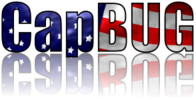Our February meeting consisted of Sysadmin Games (the brainchild of Jason Dixon). Jason brought with him a "server" (beige box) running some form of Linux and VMware Server. He had prepared blank VMware guest systems ready to be loaded with Open, Net, Free or Dragonfly BSD. After a quick trivia contest to choose which team was assigned which BSD, we got started.
The goal was to install your assigned BSD, configure networking, a web server with HTTPS and the firewall. While we were allowed "shout-outs" for help, no one seemed to use that and preferred to use their 10 minute "web search" lifeline. All of the teams fared very well, running into small problems along the way. Only one team completed the task with perfection. :)
All in all, Sysadmin Games was a huge success. We will have to start planning for future competitions.
Update: (notes from Jason)
I took notes during the meeting to track how teams were doing, how well the server was holding up, and what can be done better in the future. Surprisingly, everything went very smoothly except for the host platform (VMware on CentOS) choking at times. It seems that VMware doesn't behave nicely when you have four teams beating on the vmware console over the network. Regardless, we managed to clear those minor obstacles and every team finished with a "passing" score.
Two of the teams used their Google lifelines. Team #2 used theirs to research the PKG_PATH setting for OpenBSD, while team #3 had troubles getting PF enabled in NetBSD. Even with the disadvantage of working with NetBSD and its (admittedly odd) PF kernel module, Mike Erdely led team #3 to the winner's circle, completing all of their assigned tasks. Teams #1 (FreeBSD) and #2 tied for second place, each having minor issues with their firewall configuration. Team #4 came in a close third place with their DragonFlyBSD system.
All in all, the competition was a lot of fun and very entertaining. Everyone was a good sport and there was teamwork all around. I captured the screenshot below shortly after each team completed their installations, reflecting just how little memory each system uses by default. I look forward to future workshops and hope to get even more attendees next time.




